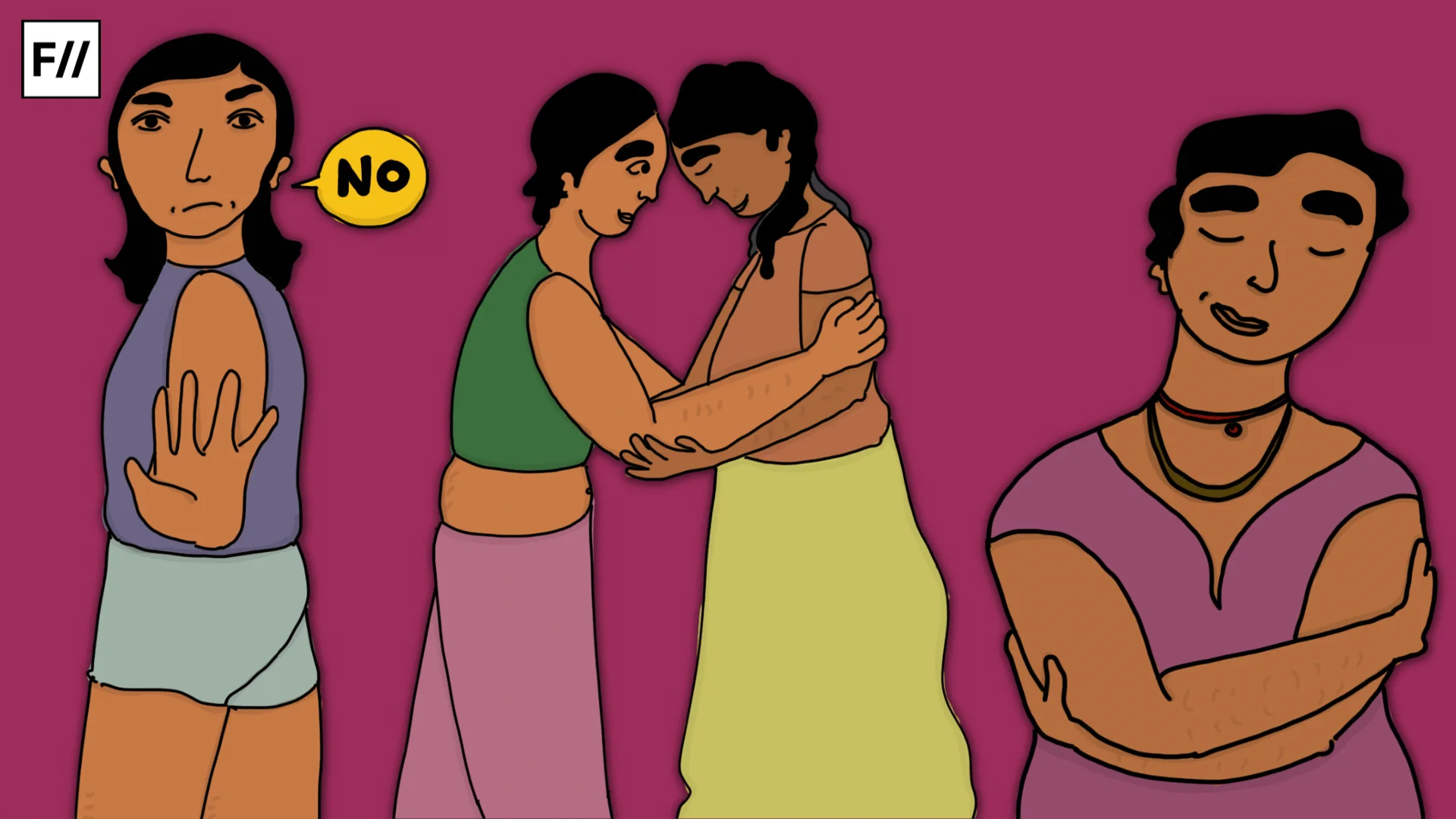The #MeToo movement has, perhaps for the very first time, brought the notion of informed consent into conversations. Even though there has been a lot of recent work surrounding consent, it is extremely important to keep having these discussions with friends and partners. Sex tends to be judged according to a binary system of consensual sex versus rape which results in the silencing of victim’s experiences that go beyond this narrative. Sexual consent is not black and white; it is complex, nuanced and constant communication is the only way to understand it.
Here is a non-exhaustive list of some basics of consent that one should keep in mind before beginning a sexual or romantic relationship.

Although, non-verbal cues are usually clear enough signals to gauge a person’s interest (or lack thereof) in a physical act, sometimes that line is blurry and hence consent is never to be assumed. The reason there is stress on verbal, clear, enthusiastic consent is because of the pressure to verbalise non-consent. Sexual violence prevention campaigns predominantly urge women to ‘just say no’ to unwanted sexual contact. This follows the common risk avoidance approach that upholds the trope of female self-responsibility. This puts the entire onus on victims; it also ignores a lot of nuances that make refusing a difficult thing to verbalise.
Also read: Understanding Consent Beyond A ‘Yes’ Or A ‘No’
For example, the response to a lot of anxiety-inducing situations is not always fight or flight; there is a valid response called ‘freezing’ that the brain gets triggered into. Scientists broadly define freezing as a response to threat characterized not only by immobility but also inhibition of behaviour. This makes a firm reaction delayed, or even unforthcoming. Similarly, in an unequal professional relationship, saying no comes with its own set of consequences that may risk one’s professional standing.
This is what makes asking for explicit consent extremely important. Sexual harassment does not depend on there being a proven intention to violate; it’s really a matter of it being unwanted in the first place. So read up on consent and try to inculcate honest communicative practices into your relationship.
Have a healthy and safe sex life, everyone!
Also read: “It’s Complicated”: Reflections On The Changing Ideals Of Romance Post #MeToo
Featured Image Source: The Mix
About the author(s)
Srishti is a media student at TISS, Bombay. The best compliment she's ever received is "Madam, you write well and all but aap poori zindagi single rahoge"




